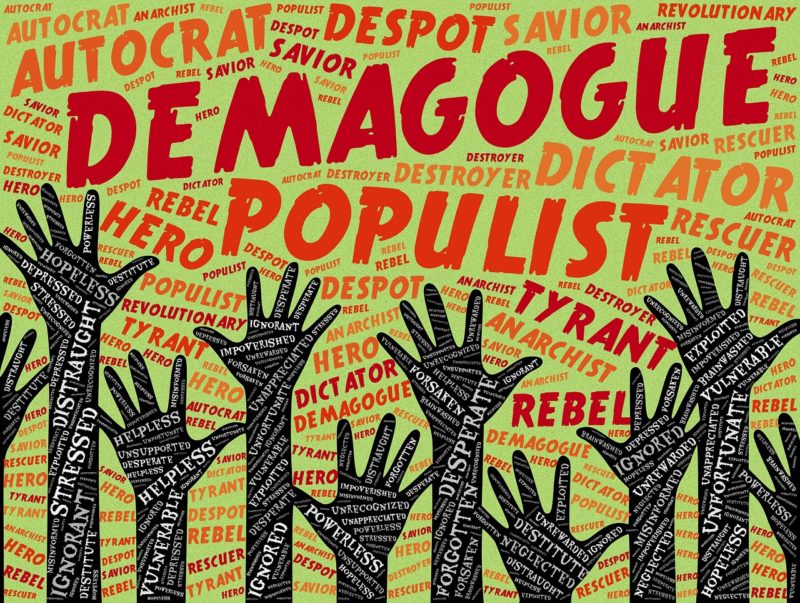“The ideal subject of totalitarian rule is not the convinced Nazi or the convinced Communist, but people for whom the distinction between fact and fiction… true and false… no longer exist.” Hannah Arendt penned these words in her insightful work, The Origins of Totalitarianism, following the horrors of World War II and the initial stage of the Cold War.
If you believe Arendt’s description applies to only one side of the current political divide, you are laboring under a misapprehension. For quite some time now, America’s political process has been stuck between two entirely different visions of how the world works. Both sides carefully cater to a particular set of intuitions and instinctual interpretations of society. Historically speaking, both sides have consistently proven to be incomplete and insufficient to accomplish what the vast majority of Americans have been clamoring for: a trustworthy, competent government that works well, solves problems and gives everyone an objectively fair shot at a better life.
We have gradually lost the pluralism of past generations, which our Founding Fathers articulated and embodied in the Constitution. In fact, George Washington specifically warned in his famous 1796 farewell speech that the “spirit of party… serves always to distract the public councils and enfeeble the public administration. It agitates the community with ill-founded jealousies and false alarms, kindles the animosity of one part against another, foments occasionally riot and insurrection.”
Building on the insights of great Enlightenment thinkers such as Locke, Hume, Voltaire and Smith, “the spirit of party,” Washington argued, is “inseparable from our nature, having its root in the strongest passions of the human mind.” George Washington understood something that psychologists and cognitive neuroscientists have only recently begun to prove: we are all narrow, one-dimensional, linear thinkers living in a complex world.
As John F. Kennedy also warned, “Too often we…enjoy the comfort of opinion without the discomfort of thought.” From there, it is quite natural for us to assert that our “opinions” are indeed facts— and the nightmare scenario that Arendt described is not far behind. In the same 1962 Yale commencement speech, Kennedy elaborated on this: “The great enemy of truth is very often not the lie—deliberate, contrived and dishonest—but the myth—persistent, persuasive and unrealistic. Too often we hold fast to the clichés of our forebears. We subject all facts to a prefabricated set of interpretations.” This is how dogma replaces intelligent thinking and compromises our ability to focus on solving problems.
Some of our greatest leaders and thinkers throughout history have warned us of exactly the situation that we now find ourselves in. The good news is that unlike our prescient forebears, we now have the tools to overcome this significant barrier to advancement.
Innovation is the most powerful tool for solving problems humankind has ever discovered. It has transformed every aspect of our daily lives and every facet of the modern world. It is so powerful because the mindset and methodology of innovative problem-solving removes dogma, ideology and partisan tribalism from the process of developing and implementing solutions. It empowers us to break free from the self-imposed prison of our own predispositions.
Whereas dogma begins with a host of unproven—often disproven—opinions and assumptions, innovation begins with facts and evidence. Instead of confining our potential solutions to the narrow, one-dimensional, linear dogmatic subset, we are now free to objectively consider all options. In place of declaring victory before evidence is produced, we systematically discover what works and what does not.
The innovation approach to problem-solving is a byproduct of four centuries of accumulated success, experience, and advancement in the modern world. The tired, old, failed dogmatic approach is a distinctly pre-modern approach to problem-solving that is a holdover from medieval traditions and superstitions. Dogmatists declare they are right because they fulfill the criteria of their assumptions and opinions, not because they actually solve a problem in the real world. Just as you would expect, a dogma chasing its own tail will only end up running around in circles.
For America to achieve a well-functioning government that serves the people and addresses pressing problems, our shift from medieval dogma to modern innovative problem-solving cannot come soon enough.

